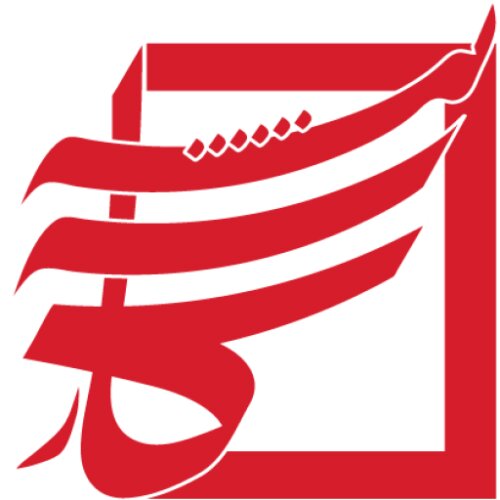Best Art & Cultural Property Law Lawyers in Tehran
Share your needs with us, get contacted by law firms.
Free. Takes 2 min.
List of the best lawyers in Tehran, Iran
About Art & Cultural Property Law in Tehran, Iran
Art & Cultural Property Law in Tehran, Iran, encompasses a broad range of legal issues related to the protection and management of cultural heritage, works of art, and traditional artifacts. This area of law addresses matters concerning cultural preservation, ownership disputes, and the ethical and legal obligations of individuals and institutions handling cultural property. Given Iran's rich history and extensive cultural heritage, these laws are crucial in maintaining the integrity of the nation's cultural assets.
Why You May Need a Lawyer
There are several reasons why individuals or organizations might require legal assistance in the field of Art & Cultural Property Law:
- Disputes over the ownership or provenance of artworks or cultural artifacts.
- Legal advice for the acquisition, sale, or transfer of cultural properties.
- Understanding compliance with local and international laws governing the preservation and export of cultural heritage.
- Navigating issues related to intellectual property rights linked to traditional art forms or cultural expressions.
- Assistance with resolving issues involving the illegal importation or exportation of cultural artifacts.
Local Laws Overview
Several key aspects of local laws are relevant to Art & Cultural Property Law in Tehran:
- National Heritage Protection: Laws are in place to safeguard national heritage sites and artifacts considered significant to Iran's cultural identity.
- Export Restrictions: Strict regulations exist concerning the export of cultural artifacts, aiming to prevent the loss of invaluable cultural assets.
- Ownership and Provenance: Legal standards help establish ownership rights and provenance, particularly for disputed or undocumented cultural objects.
- Intellectual Property: There are legal protections for traditional knowledge and cultural expressions, which are integral to Iran's diverse cultural landscape.
- Repatriation of Artifacts: Iran engages in efforts to return artifacts unlawfully removed from the country, a process supported by both national and international legal frameworks.
Frequently Asked Questions
What is considered cultural property in Iran?
Cultural property includes tangible items such as historical artifacts, artworks, manuscripts, traditional crafts, and any objects with archaeological, artistic, or historical significance to Iran.
Can I export antiques or artworks from Iran?
The export of antiques or artworks from Iran is heavily regulated, and permission must be obtained from relevant authorities to ensure compliance with cultural preservation laws.
How can I verify the authenticity of a cultural artifact?
To verify authenticity, it is advisable to engage experts or appraisers experienced in Iranian cultural artifacts and to ensure proper documentation and provenance records are in place.
Does Iran participate in international agreements on cultural heritage protection?
Yes, Iran is a signatory to several international conventions aimed at protecting cultural heritage, such as UNESCO's 1970 Convention on the Means of Prohibiting and Preventing the Illicit Import, Export and Transfer of Ownership of Cultural Property.
What legal recourse is available if cultural property is damaged?
If cultural property is damaged, legal action can be taken under civil and criminal law provisions aimed at protecting cultural heritage, with potential penalties for offenders and reparations for damage.
How do Iranian laws treat the discovery of archaeological artifacts?
Under Iranian law, discovered archaeological artifacts typically belong to the state, and their discovery must be reported to authorities. Specific permission is required for excavation and handling.
What role do museums have in Art & Cultural Property Law in Tehran?
Museums play a crucial role in preserving cultural property and must adhere to stringent legal guidelines concerning the acquisition, display, and repatriation of artifacts.
How are disputes over cultural property resolved?
Disputes are often resolved through the courts or arbitration, with mediation as a potential option, especially for international disputes.
What is the legal process for reclaiming cultural property in Iran?
Reclaiming cultural property involves identifying and substantiating ownership, often requiring legal documentation, engaging in negotiations, or pursuing litigation to recover items.
Are there penalties for dealing in illicit cultural property?
Yes, there are significant penalties, including fines and imprisonment, for individuals or entities found to be dealing in stolen or illegally acquired cultural property.
Additional Resources
For further assistance, consider reaching out to these resources and organizations:
- Cultural Heritage, Handicrafts and Tourism Organization of Iran: Provides guidance on national cultural policies and regulations.
- UNESCO Tehran Cluster Office: Offers resources related to cultural heritage protection and international cooperation.
- Iranian Legal Counsel specializing in Art Law: Professional legal experts who can offer specific guidance on cultural property issues.
Next Steps
If you need legal assistance in navigating Art & Cultural Property Law in Tehran, here are the steps to consider:
- Identify your specific legal needs concerning cultural property issues.
- Research and contact a legal professional specializing in Art & Cultural Property Law.
- Prepare all relevant documentation and information regarding your case or query.
- Schedule a consultation with a lawyer to discuss potential legal actions or solutions.
- Collaborate with your legal advisor to resolve your issue efficiently and legally.
Lawzana helps you find the best lawyers and law firms in Tehran through a curated and pre-screened list of qualified legal professionals. Our platform offers rankings and detailed profiles of attorneys and law firms, allowing you to compare based on practice areas, including Art & Cultural Property Law, experience, and client feedback.
Each profile includes a description of the firm's areas of practice, client reviews, team members and partners, year of establishment, spoken languages, office locations, contact information, social media presence, and any published articles or resources. Most firms on our platform speak English and are experienced in both local and international legal matters.
Get a quote from top-rated law firms in Tehran, Iran — quickly, securely, and without unnecessary hassle.
Disclaimer:
The information provided on this page is for general informational purposes only and does not constitute legal advice. While we strive to ensure the accuracy and relevance of the content, legal information may change over time, and interpretations of the law can vary. You should always consult with a qualified legal professional for advice specific to your situation.
We disclaim all liability for actions taken or not taken based on the content of this page. If you believe any information is incorrect or outdated, please contact us, and we will review and update it where appropriate.















